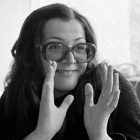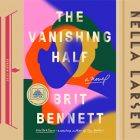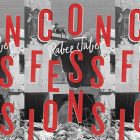Finding the Self in Departure

At the school newspaper that I once served as a faculty advisor for, outgoing section editors had the option to write a farewell column for the last issue. The issue was always a hectic one as the new section editors learned the ropes. The fluorescent-lit basement room where the staff worked felt claustrophobic in the frantic dash to make the hard print date so the papers would be ready to pass out at graduation. The issue also had an air of secrecy since the newspaper staff had the exclusive distinction of learning the student and faculty award winners ahead of their announcement to the school population so that we could write articles on them, sneakily getting quotes about the winners without tipping anyone off. The editor emeriti always tried to sneak a peek to see if they’d won anything, and if they hadn’t, they gossiped amongst themselves about whether the award winners were worthy. At the same time, these graduating students were eager to leave, high school beginning to feel juvenile to them. They were ready for trips to Europe, ready to go off to college a little smug after four years of dorm living at boarding school. They also weren’t yet ready to remember. Many of them passed on writing their farewells, and those who did often seemed to have forgotten the writing chops we had laboriously worked with them to cultivate. In their rush to get out the door, their letters were trite and lacking details they’d remember later when the nostalgia kicked in.
When I was on my way out, too, a part of me wished that I could write a farewell letter of my own, to the only life I’d ever known: school, first as a student and then as a teacher. I hadn’t had a break or diversion for anything else—couldn’t even take the job as a cheese monger I was offered in high school because I was a boarding school student. Part of me regretted my lack of experience and the one-notedness it translated into, which filled me with uncertainty tinged with fear. But as I prepared to finally leave the boarding school world, I was also consumed by nostalgia. I wasn’t ready to do anything but remember. My farewell would have been an elegy to the life that was ending, my own experience as a boarder snarled with my time as a teacher at a boarding school. I had clung to the one notedness of my life despite it feeling unimaginative and boring, and the thought of cleaving from it was terrifying. Who would I be when I left school for what felt like the real world? What was the real world anyway? “I sometimes regret the ambition of my youth and wish I’d spent more time moving slowly. Or I wish for more than one life. I wish to try life more than one way,” Samantha Hunt writes in The Unwritten Book: An Investigation (2022). It was May, a month before my thirtieth birthday, and even as I plodded toward a milestone many groan about, I still felt like I had youth yet to claim, and the ambition of it felt more forceful than ever. My singular dream of teaching at a boarding school had sped me to this moment with momentum that would carry me right over the cliff of my eminent departure. I was unable to imagine any other life, and though I was making the choice to leave, I was not yet ready to want a second life.
For a long time, I wanted to attempt to put into words how boarding school is a way of life, for both students and teachers, but to do so in the thick of it felt impossible. It’s only after leaving that I’ve found the stamina to write about the intensity of such an all-consuming experience. How unique it is for your employer to be your landlord, your dean to be your dorm parent. How unique it is to live with your teachers or your colleagues, your best friends, and the people you wouldn’t otherwise interact with except that somehow you do because you are there, all the time, together. “We lived together so closely,” Curtis Sittenfeld writes in her iconic boarding school novel Prep (2005), “we got shuffled and thrust together and shuffled again, and there was always the chance that you might find out one of the pieces of hidden information.” And this is how it was, shuffled together with people outside of our immediate social circles—the biology class with mostly juniors that you were in as a sophomore, the math teacher on your dorm duty team who was a messenger from the other side of the pond of the humanities—with whom we greedily traded secrets about this world that, for many of us, was our whole lives, or at least much of it. The campus can be a bubble one seldom leaves, figuratively if not literally, so when one does leave this means escape and reprieve. At least, that was how it was for me, and I think, in part, it was my inability to draw a border between myself and my schools that led to my decision to leave, a decision I found excruciating. I was leaving my way of life, my future, and at the same time trying to locate the self that was doing the leaving.
I mourned teaching at a boarding school before I even left, but just as it was when I was a senior about to graduate, I watched my relevance fade before I was gone. Sittenfeld’s protagonist says, “how quickly, really even before you graduated, you became obsolete—for a little while because you were a senior, the school was yours and then it wasn’t yours at all anymore.” The ephemerality of high school—a complete turnover every four years—rang true to some extent for faculty members: though our tenures were generally longer, we, too, come and go. I felt so much a part of the warp and weft of school life, invested in that fabric of it, that I was startled by how quickly I passed into obsolescence when in the spring the school looked ahead to the fall I’d be absent from. The school I left after six years already felt as changed as I felt, a few whole departments nearly new, almost the entire administration a different roster from the one I had started with. Boarding schools in general were now a different animal from when I’d graduated. This was partly due to the fact that the school where I worked differed greatly from the one I attended, but I suspect that the shifting landscape of education was responsible for much of the change I felt. When I was a student, we weren’t allowed to have our flip phones out of our dorm rooms. Now smart phones and ear buds dominate the halls and lunch tables. I hardly remember knowing my grade between marking periods; now grades are expected to be updated and accessible always, and the online assignment calendar is a bible. We secretly recorded videos of ourselves sitting in class and posted them on each other’s Facebook walls and took silly Photobooth videos on our Macs when I was school—TikTok was a thing of the future. So were an increase in school shootings and the Black Lives Matter and #MeToo movements.
Still, the world of boarding school was the most familiar world I had, and I didn’t know what I would find on the other side of the only thing I knew. I didn’t even know if I’d still be myself. “A personality, sometimes it is a burden,” Amina Cain writes in A Horse at Night: On Writing (2022). “How nice it can feel to set it down. For it to momentarily disappear. Maybe this is partly what is meant by letting go of the self. It is one way we can do it.” To leave boarding school was a way of setting down myself, but it was a discovery of personality rather than an unburdening of one. I let go of one self, one life, to try life in another way, as Hunt writes, passing from my first life as a teacher into my second life in an administrative work-from-home position at an academic consulting company. It had been easy to say that I was a teacher, a job people conceptualized without further explanation, but I didn’t know how to explain this new job with its opaque title to myself or others. I’d entered the ambiguous realm of employment that is increasingly inhabited by Gen Zers and my fellow millennials. After I set down my first life, disappearing for a moment, I came to in my second life where I discovered that my self indeed has borders and that it can pass from one life to another. Oh, how nice this discovery was.
Leaving was terrifying and painful—after all, I was parting with the only thing I’d dreamed of doing, a life I had mapped out through retirement—but leaving also felt like an act of daring, and it called to the fore other qualities of myself that felt hard to set down, even when I chafed under their burden: migraine and bipolar II disorder, both of which impacted my mood by blurring the lines of reality with mystifying lows and highs that both relieved and terrified. “The pain is terrible. I hate it. I hate the time it takes from my life, my helplessness in the face of it, the tears soaking the pillows I’m curled around,” Helen MacDonald writes in Vesper Flights (2020). “But migraines remind me we’re not built with the solidity so many of us blithely assume.” This is true of my migraines, too, and the frustration I feel having time sucked into a darkened room with the chill of ice packs wrapped around my head and shoulders. But it’s also true of my depression, another stealer of sunlight that makes moving from bed feel impossible. In recent years, anxiety eclipsed depression in stealing my time. “Some days, I am wrecked by feeling,” Hunt writes of her own lost time. “Grief and desperation, anger and anxiety tear a hole in my being. Other days, I feel nothing. Those are the worst days.” Feeling, one way or another, can wreck not just a day but one’s very being. My invisible pains and my inseparability from school wrecked me, but they were me, too—or so I thought.
In her novel Checkout 19 (2022), Claire-Louise Bennett’s narrator thinks, “Quashed completely by deep despair and anxiety which was relieved now and then by anguished though relatively merciful bouts of sobbing. I had no small children, no errant husband—I had plenty of friends, was getting educated—the world, I was told again and again, was my oyster—I could go anywhere, be anything…At such times I could see no way ahead.” I see myself in this narrator, whose description aptly describes the circumstances of my own life. Last year, home from a short trip to Chicago, I discovered that in our absence the Christmas tree’s water had dried up. When I rubbed my fingers against the now-crisp needles, they broke off in my hands. I sat on the couch and burst into tears, subsumed by despair that felt depthless. The already dead tree’s death wasted me in a way that unmasked the hypomanic state I’d been in for the past several months, and in doing so, it plunged me back into the riptide of depression underneath that was much stronger than I had initially realized. I was bereft, unmoored. I saw that I’d blithely assumed my stability was fixed when in fact stability requires muscle, and I’d let my muscles atrophy. “And what if stability is just another awful way of saying normal? Of saying sane?” Hunt asks. “Then, who built the borders of sanity? Who decided where those walls should be?” Crying over the Christmas tree, I felt insane. It made me angry and it made me sad and it made me tired. As common as migraine and mental illness may be, it frustrated me that there are people out there who aren’t wrecked by feeling and that I am not one of them and never will be. Sometimes—often?—to be stable, or put otherwise, even keeled and not subject to the whims of feeling, seems vastly preferrable. There on the couch, I knew, even in my distress, that I needed to find a way ahead, that though I’d never be normal, I needed to do something major to restore myself to my own version of stability and that I needed to do it now.
Cain points out the dissonance between how we describe positive emotions and debilitating ones. “If I am anxious I am not anxiety, yet anxiety marks me, marks who I am, how I live. But so does happiness. Now I’m not sure,” she writes. Like Hunt, feeling exerts force on Cain’s self and her life. “Maybe the self is the absence of something like anxiety or happiness,” she continues. She posits that one’s self isn’t defined by emotions, though we speak of some of them in that way. They affect us, but they aren’t our entire being. I see now that I was a teacher, that I’m an anxious person (though fortunately not to the extent I once was), that I am a migraineur, but I am also—and this surprised me—just me, a throughline in my own life, a self comprised of things other than vocation and illness, which I only learned by leaving the only world I knew. Leaving became not a cliff I fell off but a new landscape I landed in. I was Dorothy transformed into color in Oz, Alice careening through Wonderland. It took a tumble and tornado to get there, but I passed from one place to another. I admit that perhaps I am being melodramatic, but I am also merely rendering my experience as I felt it.
I’m still surprised by my own capacity—daring—to walk away from boarding school and into a second life. The first one still lingers, it always will, I know. The doubled intensity of my boarding school experiences are the most transformative experiences of my life, but after I left, I didn’t miss it, not a bit, until I picked up a boarding school novel, Pamela Eren’s The Virgins (2013). Only then did I miss my boarding school days, mostly those as a student rather than those as a teacher. Having mourned that first life before I left it, finally missing it from the afterlife, I felt like crying over something I was expected to cry about but hadn’t been able to. Missing it from the vantage point of my second life made me feel whole in a way I hadn’t felt before, which brought with it relief. The experiences Eren describes ring as true as those in Prep as well as Emily Layden’s novel All Girls (2021): formal dinners, advisory groups, secret spots where students broke rules, assemblies, games the whole school played, Harkness tables, sharing clothes—terms that carry their own meaning in the parlance of boarding school. Layden’s narrator looks back at her and her classmates’ experience and thinks, “Instead what they’ll feel is a very particular kind of ache, one that will spasm at random intervals—in the shower, on a bad date, in the middle of a college seminar—and when it does they’ll know: this is the longing you feel for a place that’s become a part of you. This is the yearning you will carry when you never really leave.” This is the pang I felt in the first few pages of Eren’s novel, a part of me still in disbelief that this time of my life has come to a close for good. A version of myself still lives there, already somewhere that no longer exists.



